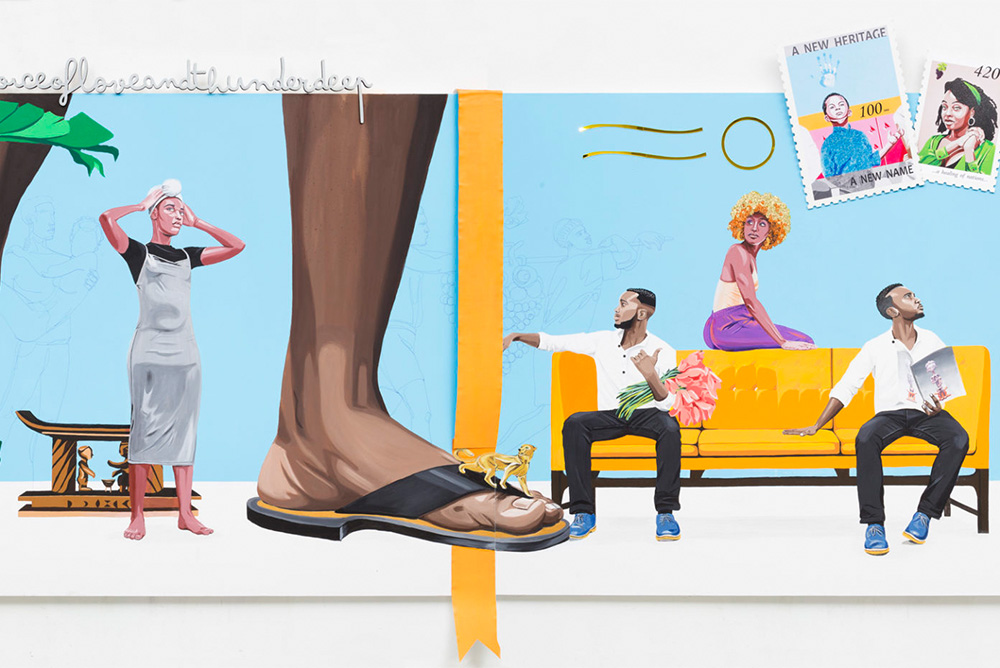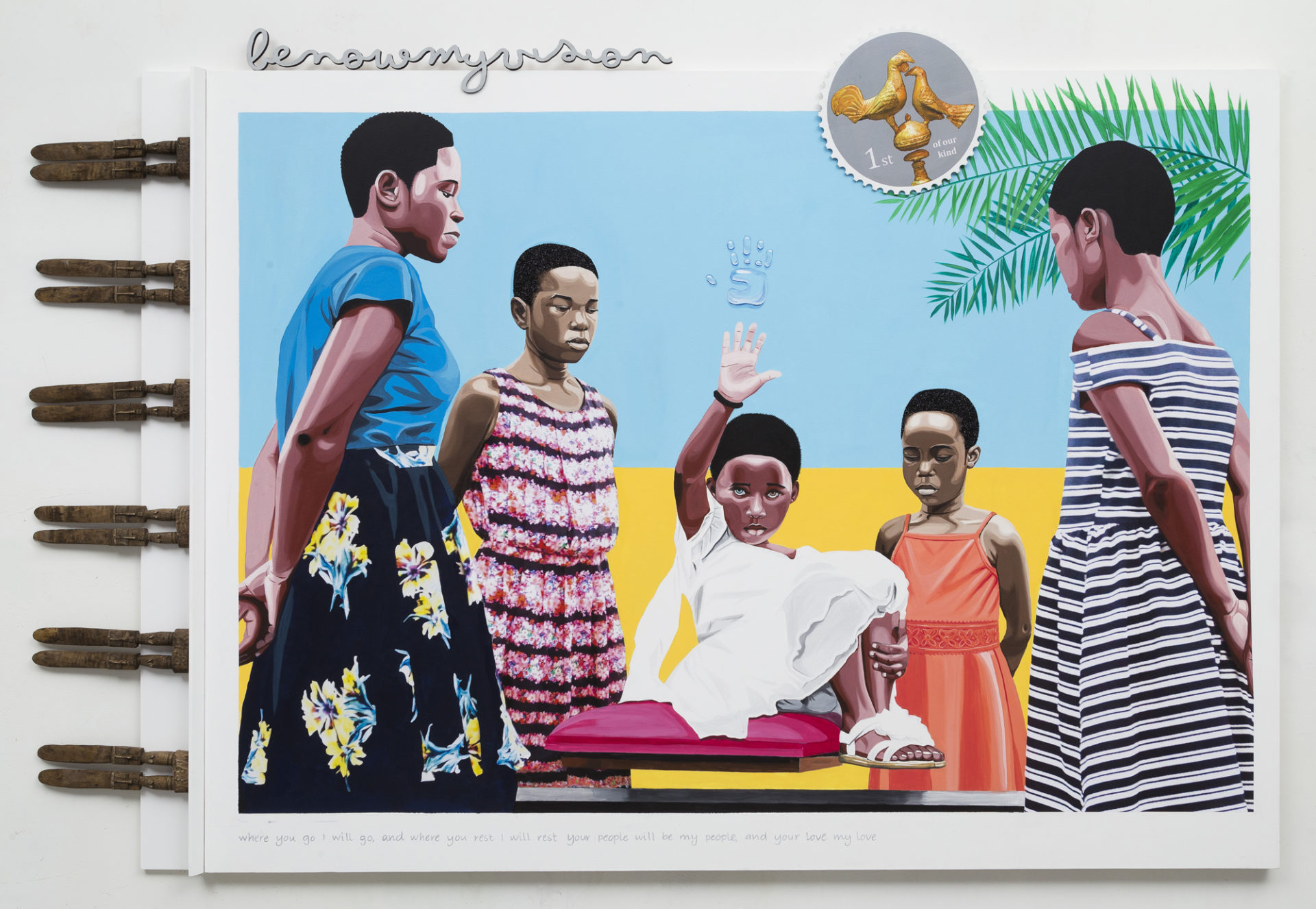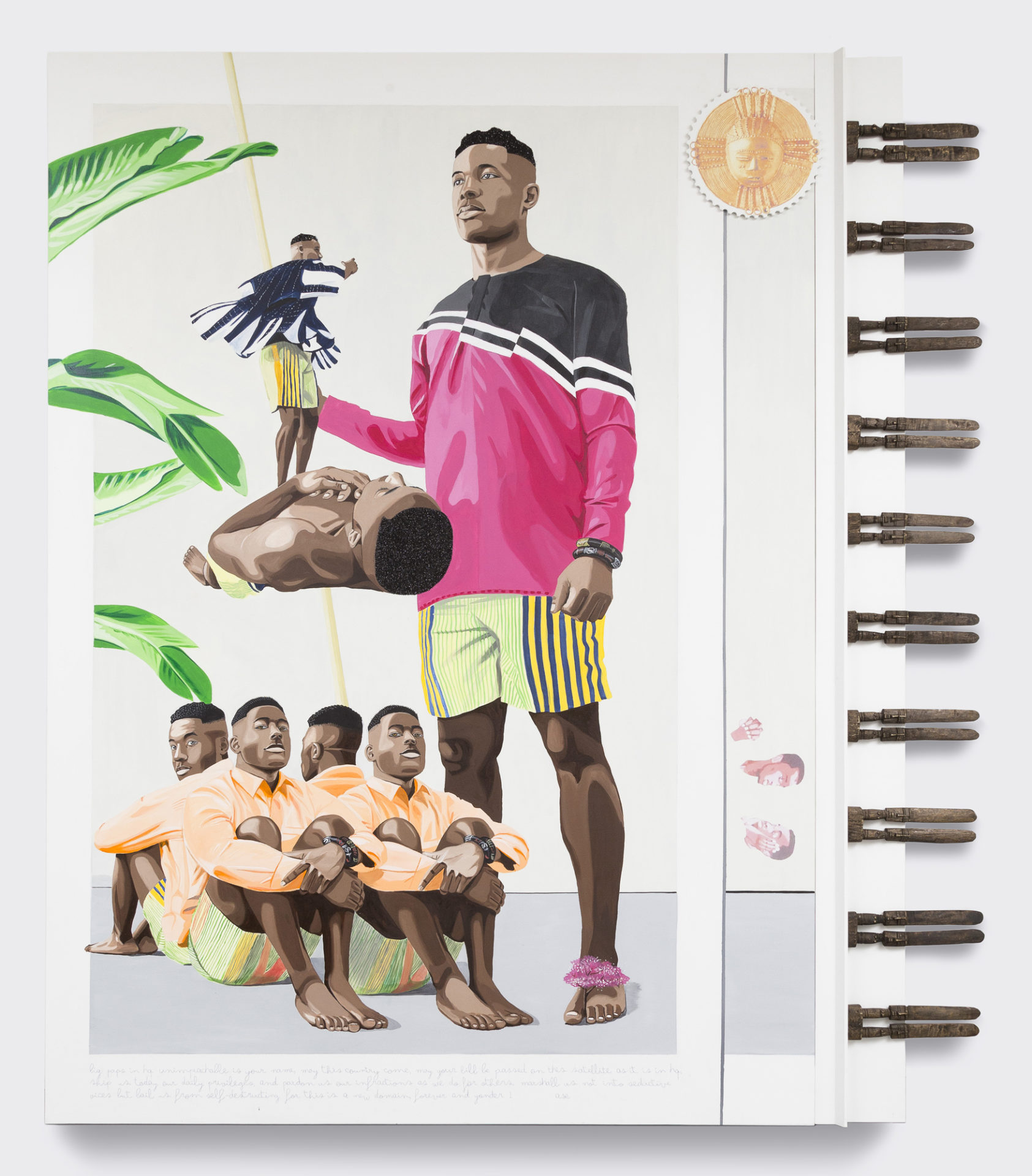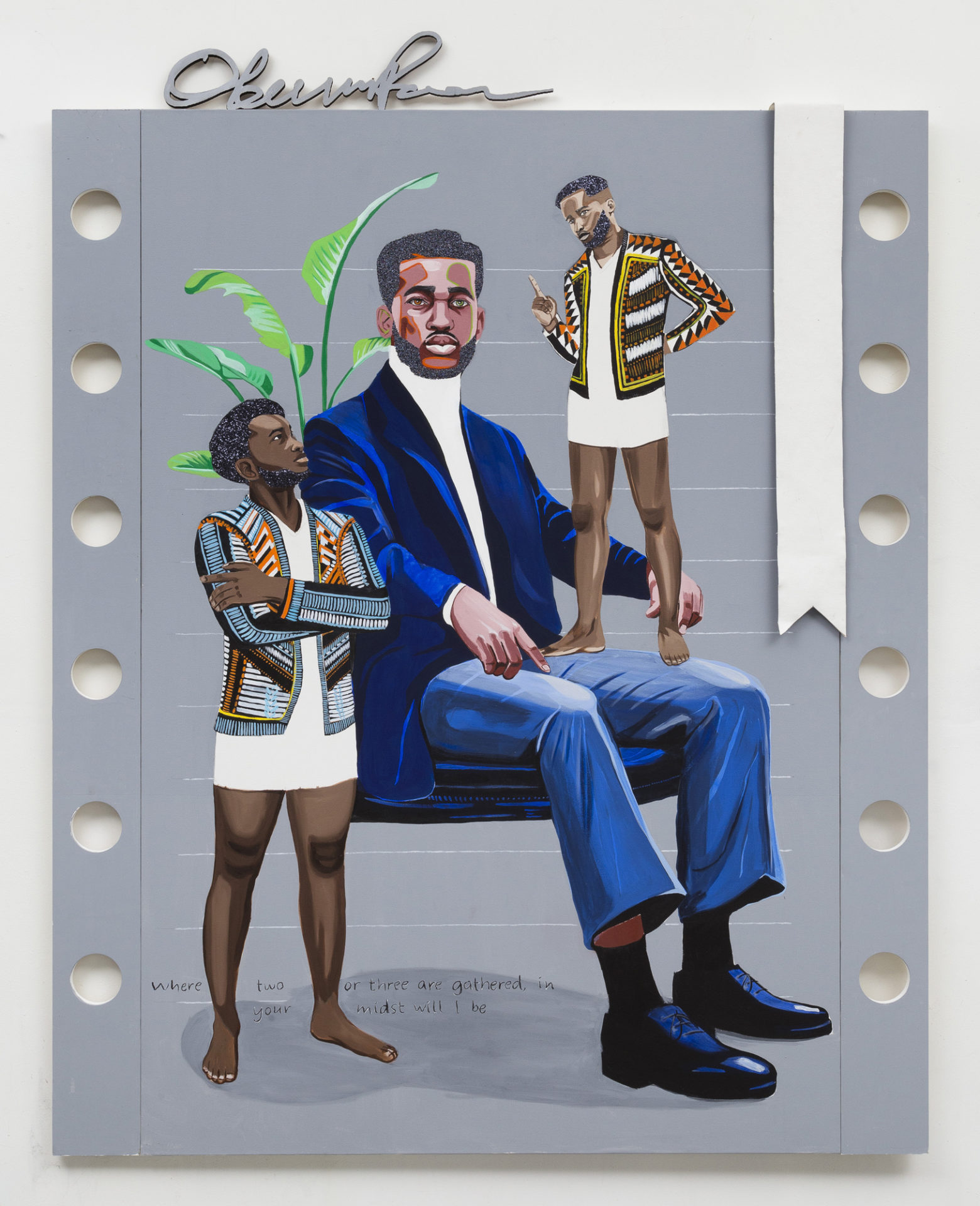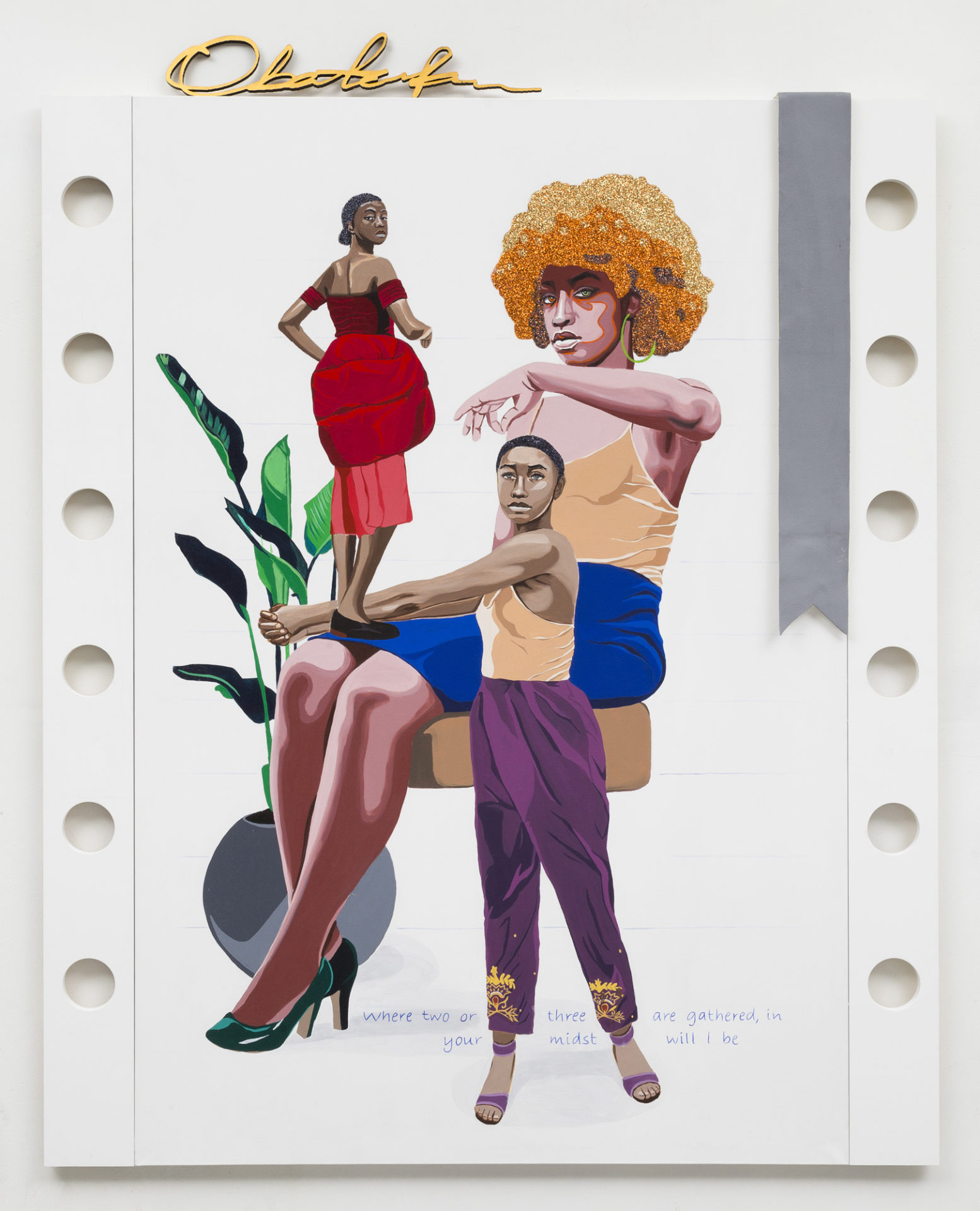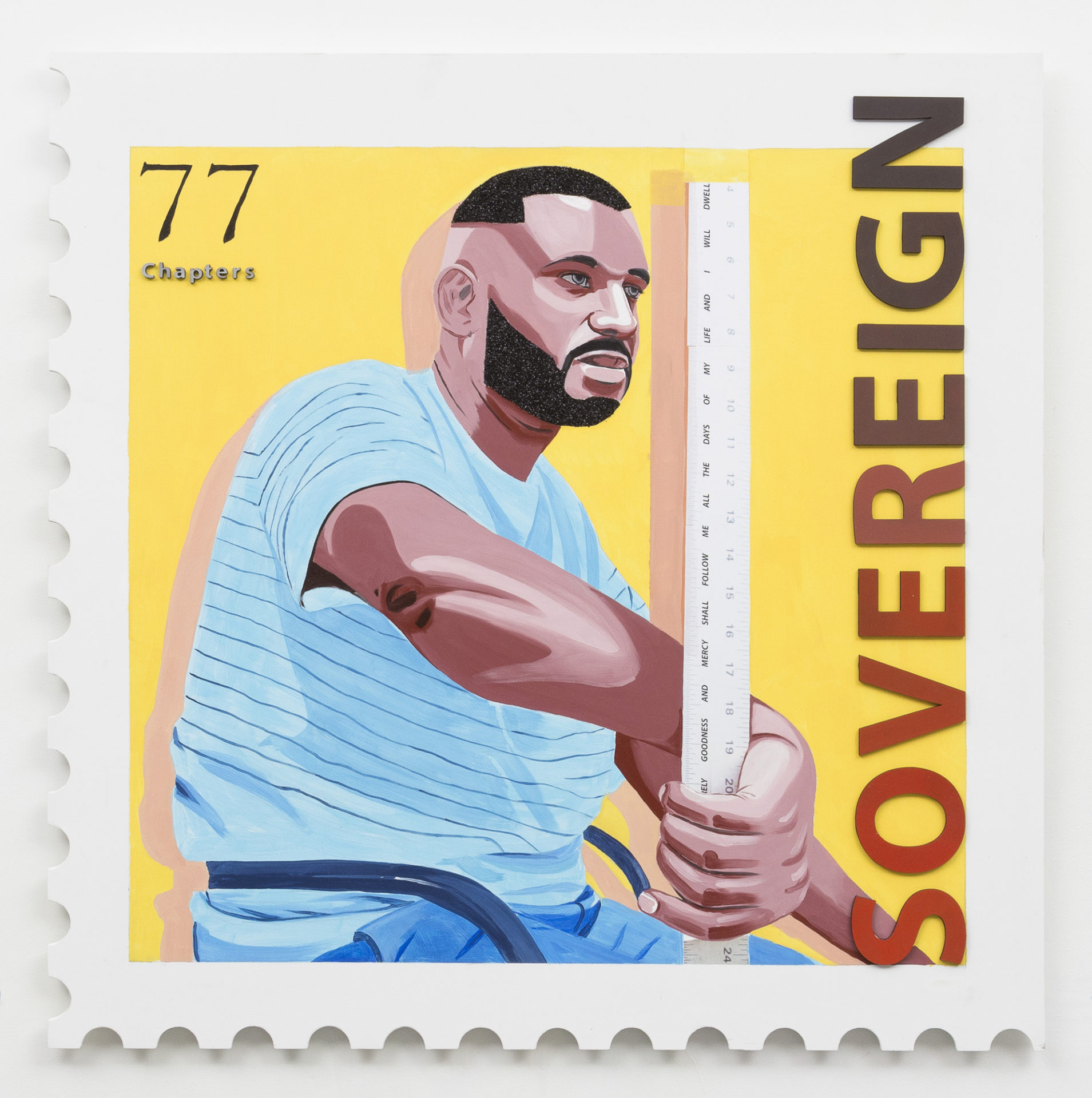Conrad Egyir: Terra Nullius
Terra Nullius is the first solo museum show for Detroit-based visual artist, Conrad Egyir. For this debut, Egyir created a new body of work while in residency at the International Studio & Curatorial Program (ISCP) in New York City, during the summer of 2019. The works in this show focus on figurative characters that reside or bestride three geographical spaces–Detroit, New York, and Aburi, Ghana–and how the cultures of each of these locations define citizenship, migration, hybrid spaces, and political and religious revolutions. At the core of the exhibition, is finding similarities among the three psycho-social terrains and synthesizing them into a new space “Terra Nullius.” Within this new place, devoid of political and legal constructs, its residents behave as stewards of time, resources, and space.
Conrad Egyir: Terra Nullius is organized by the Museum of Contemporary Art Detroit in partnership with International Studio & Curatorial Program. Conrad Egyir: Terra Nullius is coordinated by Tizziana Baldenebro, Ford Curatorial Fellow with curatorial insights from guest curator Larry Ossei-Mensah.
Exhibitions and public programs at MOCAD are supported by the A. Alfred Taubman Foundation. Lead funding for this exhibition is generously provided by The Kettering Family Foundation, with additional support provided by Jessica Silverman Gallery.
